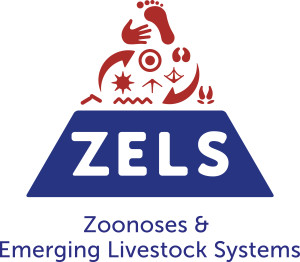Dates: 2016 – 2021
The Myanmar Pig Partnership was an interdisciplinary research project exploring the disease risk thought to be accompanying changing pig production patterns in Myanmar.
Read three Evidence Briefs from the project:
- Taking Myanmar’s National Action Plan forward
- Pig meat and food safety in Myanmar: evidence to support practice
- Training paths to improve health and .livelihoods for Myanmar pig farmers
Background
People in Myanmar are thought to be at increasing risk of zoonoses (diseases passed from animals to humans) as a result of the rapid growth and intensification of livestock production in the country in recent years. Those most at risk are likely to be farmers and frontline workers and their families, but the impacts of disease are thought to be widespread as risks come from eating pig meat as well as close contact with the animals.
Zoonotic diseases can have deeply damaging impacts on people’s health, particularly of poor people in poor countries. They can lead to illness and death – and also impact severely on people’s livelihoods. However, this severe limiter to health and wellbeing is often unrecognised and under-explored.
In the video below, lead researcher Dan Tucker talks about the project.
[embedyt] https://www.youtube.com/watch?v=FwIIDNgpAx0&width=250&height=141¢ervid=1[/embedyt]
The Myanmar Pig Partnership was funded under the Zoonoses and Emerging Livestock Systems (ZELS) initiative.
The Partnership – fully entitled ‘An integrated management-based approach for surveillance and control of zoonoses in emerging livestock systems: Myanmar Pig Partnership’ – was led by the University of Cambridge. It started work in 2016.
- Read our Medium story highlighting the crucial capacity-building work at the heart of our research project: Keeping pigs and people healthy in Myanmar
- Read our Shorthand story about the research, below:
- Read a message from Dr Ye Tun Win,
Director General of Myanmar’s Livestock Breeding and Veterinary Department. (pdf) - Download a report from our 2017 annual meeting (pdf)
Find out more about:
Our Research
Our Partners
Please note that since February 2021 and the military coup in Myanmar, fieldwork in Myanmar and collaboration with our Myanmar government partners have ended. Other work for the Myanmar Pig Partnership continues.
Subscribe to our mailing list

